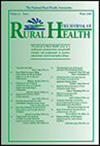Colorectal cancer screening barriers, facilitators, and promotion recommendations by Alaska Native people who are non-adherent to colorectal cancer screening
Abstract
Purpose
We examined barriers and facilitators to colorectal cancer (CRC) screening among Alaska Native individuals who had never been screened or were not up to date with screening guidelines.
Methods
As part of a larger study investigating the use of the multitarget stool DNA test in rural Alaska communities, we conducted focus groups and in-depth interviews with 28 never screened or not up-to-date Alaska Native people in two remote communities between November 2022 and July 2023. Participants shared their barriers to CRC screening and offered suggestions to improve programs to better reach those who are guideline discordant.
Findings
General screening barriers included lack of knowledge, fear of discovering you have cancer, and cultural health beliefs. Colonoscopy-specific barriers included embarrassment from knowing the local medical staff, having rectal area viewed or touched, fear of pain and injury, difficulty scheduling a procedure due to traditional food gathering activities, lack of provider referrals/reminders, and the high cost of air travel required to get to a colonoscopy facility. Stool DNA-specific concerns included not feeling that it was as good as colonoscopy, lack of privacy to do the test, and hesitancy collecting stool samples. Suggestions for increasing screening rates included increasing access via paid air transportation, using local indigenous languages, improving provider relationships and reminder systems, and providing CRC and screening education using trusted messengers.
Conclusions
This was the first exploration of the perceptions of CRC screening among guideline discordant Alaska Native people. Identified themes can be used to improve screening program outreach effectiveness in the future.

 求助内容:
求助内容: 应助结果提醒方式:
应助结果提醒方式:


